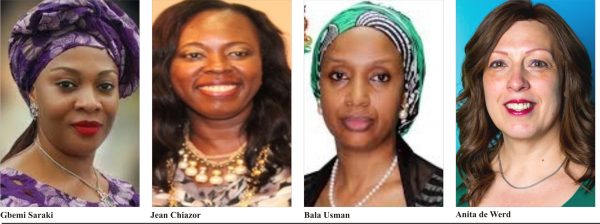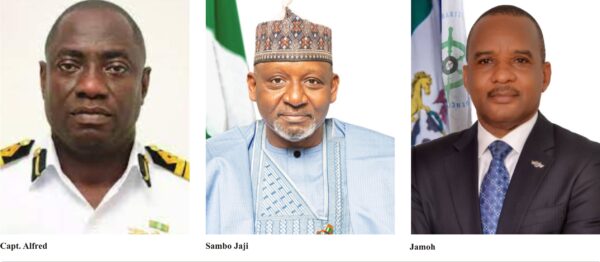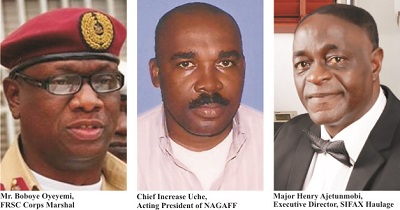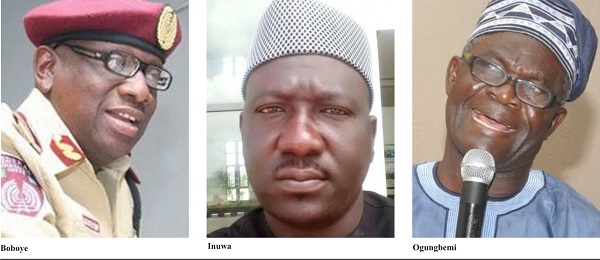WAPIC: Alternative To Power Epilepsy?
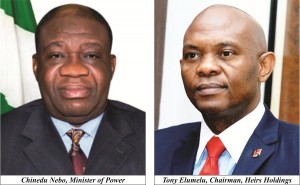
In Nigeria the issue of power has been a very contentious one as different administrations had made several failed promises on solving the power problem. Huge amount of money had been channeled towards the direction but there has been very little or nothing to show for it. The privatization of the power sector last year by the Federal Government was a milestone achievement. It was a supposed welcome relief for Nigerians who thought that at last the problems of power would soon be over.
Even though, it is barely a year that the sector was privatized, Nigerians are yet to see improvements in power supply and are still grappling with metering problems and estimated bills. Electricity consumers have almost lost hope in any attempt by the Federal Government to improve power supply as a result of failed promises and bogus policies that only raised hopes only to dash it to pieces soon afterwards. Nigerians are still hoping, expecting a better holistic approach change that will completely turn around the fortunes of the power sector in the country.
Globally, alternative means of generating energy is being explored. Solar, Wind, Biomas, and Water; all renewable energy are being explored by many countries in Europe, America, Asia and some other parts of Africa.
What is Nigeria doing in this regard?
Recently, the Minister of power said that almost all parts of the country were amenable to solar power. Since Kanji has all but failed, the country should look elsewhere for alternative. What about coal? Seventy-five percent of Australia’s power generation comes from coal and we have rich deposits of coal in the country.
What about Biomas? This is power generated from waste. This kind of power generation kills two birds with one stone. It not only generates power but it cleanses the environment of waste. Nigeria generates a whole lot of waste, why can’t the government look towards this direction. The beauty of it is that it can be generated in small quantity for household use. Countries like Nepal, Bangladesh, Sri Lanka have achieved massive success in this alternative to power generation.
Hear what Segun Adaju, Chief of Party, Renewable Energy and Energy Efficient Project, Winrock International, Nigeria.
“My vision is to see the rapid uptake of clean energy options using various available and abundant resources in replacement of fossil fuel. I foresee a future where renewables will contribute at least 30% of the energy mix in Nigeria”.
Agreed, great educational work and huge awareness campaign is required for this to work properly and effectively but the question still boils down to the government. What is it doing to see that the awareness of the energy mix is instilled in the minds of the people? Are there articulated plans to educate the common man on how he can help himself set up a small Biogas plant for his household? Since energy conservation is a kind of generation, is he being taught on how to do this? The Government has a lot to do in this area.
The bottom line is that Nigeria needs power, steady power to survive. It is a good thing that the sector has been privatized that is why the private sectors are now coming in to the rescue. The WAPIC event was a good platform for the stakeholders-Generating Companies (GENCO), distribution companies (DISCO) and consumers to showcase what they have and deliberate a way forward for the industry.
Tony Elumelu, the Chairman of Heirs Holding said at the event that Heirs Holdings had the ambition to generate at least a quarter of Nigeria’s power consumption needs in the next five years and described the USA’s Power Africa Initiative as “an amazing opportunity to democratize access to power for Africans, and the $2.5billion investment commitment we have made reflects exactly how excited I am about it. The present administration made a bold decision when it decided to affect the changes envisaged by the power sector Reform Act-Legislation that had been on the books since 2005 and that bold step was reinforced during President Barack Obama’s last visit to Africa, we felt more strongly than ever, the need to help power Africa”.
This is a commendable feat provided government policies and bureaucracy will not stifle the smooth progress of the project.
Elumelu believed that the WAPIC event was a powerful tool in creating awareness, educating people and charting a course towards solving the power problem in the country. Other stakeholders also spoke highly of the effect the event will have on the minds of people regarding the power industry. Dr. Ransom Owan, the Group Managing Director, Aiteo Power Generation and Distribution company when asked to say how he felt about the project, said “We see the greatest change to the quality of life emanating from the provision of steady power. Aiteo is driving that success and WAPIC is a good platform for us”.
Reynolds Dagogo – Jack, former Presidential Task Force on Power said that “WAPIC had grown to be the leader in the promotion and deepening of trade, technology and investment across the region. This is commendable, going forward you can begin to commit more time to the development of institutional capacity for the strengthening of the regional pool which represents new opportunities for the growth in the industry, I believe that WAPIC is quite important, the growth in attendance every year testifies to this”.
These accolades are unsolicited, they are spontaneous and to the point. They go to show the extent the event has impacted in people.
Mrs. Ify Ikeonu, a legal council member of the ECOWAS Regional Electricity Regulatory Authority (ERERA) Ghana, said that the “WAPIC is important on the regional power calendar as it is an event that provides a platform for stakeholders in the region to come together to network and exchange idea and experiences on pertinent issues specific to the electricity industry”.
The Commendations continued, Mr. Alexander Osei, the General Manager, Management Information systems, Electricity Company of Ghana (ECG) said “WAPIC is the International Forum for the power utility players within the West African Region where common challenges and successes are discussed. It makes the “wounded” companies whole again. It soothes their sorrows, heals their wounds and drives away their fears. All our executives and managers of the power industry in West Africa are cordially invited to attend the event next year, I am proud to be part of WAPIC”. He continued “but for Ebola, we would have had speakers from all West African Countries. The utilities are now seeing the light. They are beginning to realize the importance of WAPIC.
The Managing Director Wartsila Nigeria and a Member of WAPIC Advisory Board Mr. Ade Audifferen said that “the event has traditionally been placed at end of the year, so I like to say that it “caps” the year in summary for the industry while setting the pace for the coming year, Wartsila is pleased to be participating in WAPIC”.
The Program Director and the content Producer of the event Irene Ochem sunned it all by saying that “WAPIC is coming up with more exciting program content” and are ready to continue to chart new and progressive chart for the growth and development of the power sector in the country.
Accolades, encomiums have been heaped on the organizers of WAPIC. To whom much is given, much is expected goes the saying. So much has been entrusted to WAPIC, it is now up to them to prove that they can continue to contribute and sustain the growth f the power industry in the West African region.
For all these to become meaningful, it has to transcend beyond theory, it has to become a reality. But the fear is the nature of Nigerian policies and unnecessary bottleneck that will eventually snuff life out of the supposed successful programme.
By Emeka Chukwuaku



